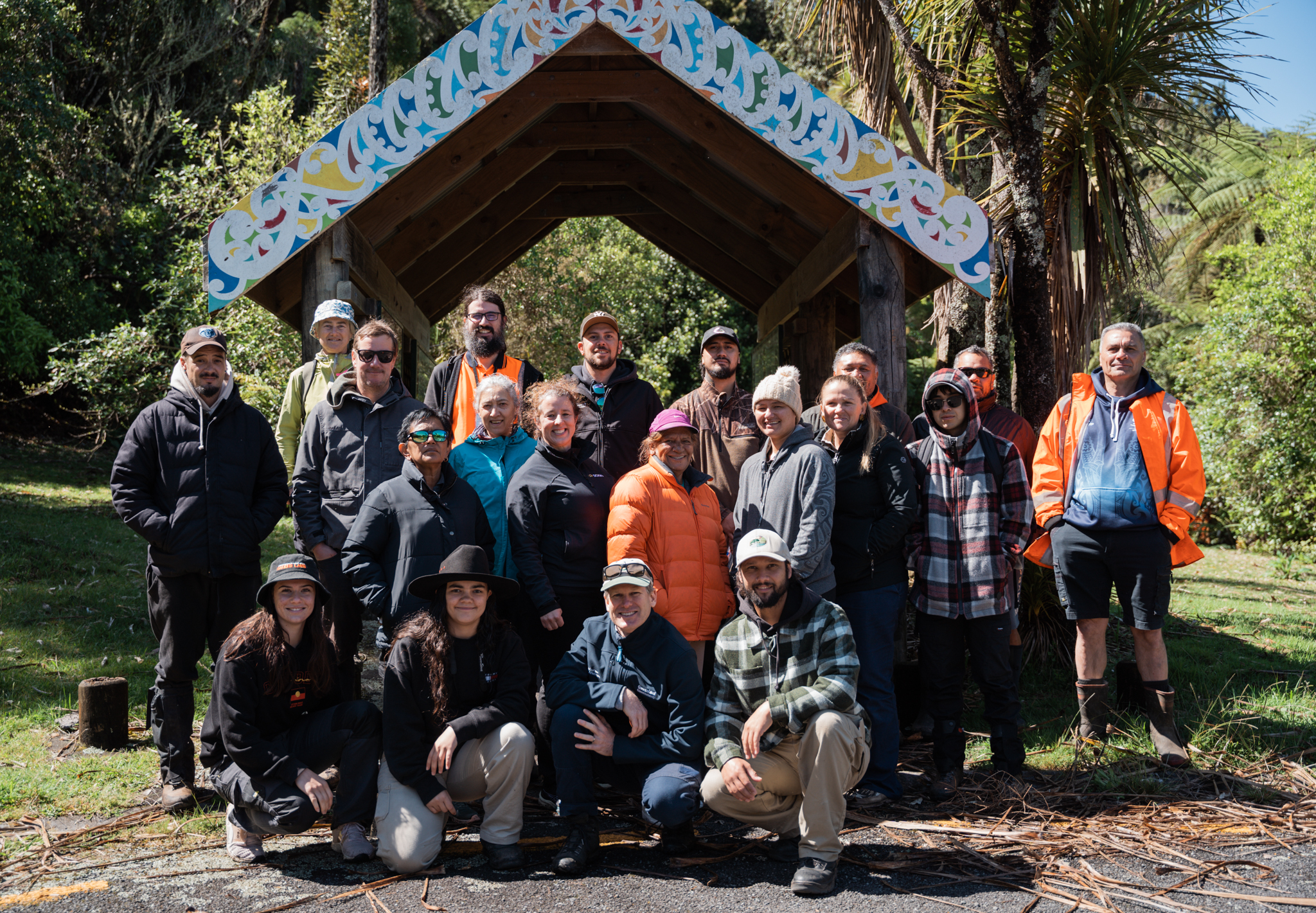Impact story: Uniting for a purpose
In October 2024 we released our 2024 annual report, which showcased the significant impact our staff have delivered in the research, science and technology development space for the forestry, industrial biotechnology, and advanced manufacturing sectors.
We’re proud of what we’ve achieved, so we’re sharing some of those impact stories on our website over the holiday break – for your reading pleasure.

The Myrtle Rust Jobs for Resistance programme, Te Rātā Whakamaru, is a Scion-led project delivered in partnership with Rotoiti 15 Trust and funded by Jobs for Nature | Mahi mō te Taiao, through the Department of Conservation | Te Papa Atawhai. The project has been developing knowledge in myrtle rust, working with and for mana whenua.
Scion researchers, Rotoiti 15 Trust and indigenous communities from Australia came together in 2023 to tackle the pressing threat of myrtle rust and its impact on biodiversity loss on both sides of the Tasman.
Why it matters
- Repeated severe infection of myrtle rust can cause decline or death of large trees, threatening ecosystems.
- Cultural exchanges show the benefits of integrating traditional Indigenous knowledge with Western science to protect the environment, showcasing the value of both perspectives and global collaboration in addressing ecological threats.
In November 2023, Scion and Rotoiti 15 Trust hosted a cultural exchange in Rotorua, welcoming representatives from the Department of Agriculture and Fisheries; Queensland and New South Wales Department of Climate Change, Energy, the Environment, and Water; the University of Tasmania; the Butchulla Nation (K’gari Queensland); the Gumbaynggirr Nation (Coffs Harbour, New South Wales) and the Bundjalung Nations (New South Wales).
The visit was an opportunity for Indigenous people and researchers to demonstrate how they each have a valuable role in protecting the environment from exotic diseases.
The video “Whakakotahitanga i te Kaupapa | Unity of Purpose” captured the respect both cultures have for nature and the interconnectedness of all living things. The message is clear: healthy forests are essential for healthy people.
Since 2022, field technicians have been monitoring sites around Rotorua for signs of myrtle rust on ramarama, rōhutu and their hybrids. That work has led to propagating cuttings in the first stage of a long-term resistance breeding programme. It has also positively impacted people who have found new employment and a passion for conservation.
Lessons from the Te Rātā Whakamaru programme are forming the basis for cutting protocols that could be applied to other indigenous species. The cultural exchange was funded by Catalyst Seeding from the New Zealand Ministry of Business, Innovation, and Employment.
